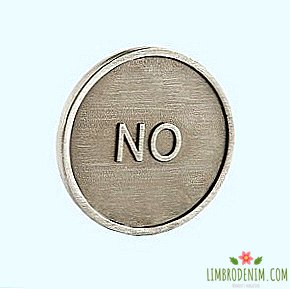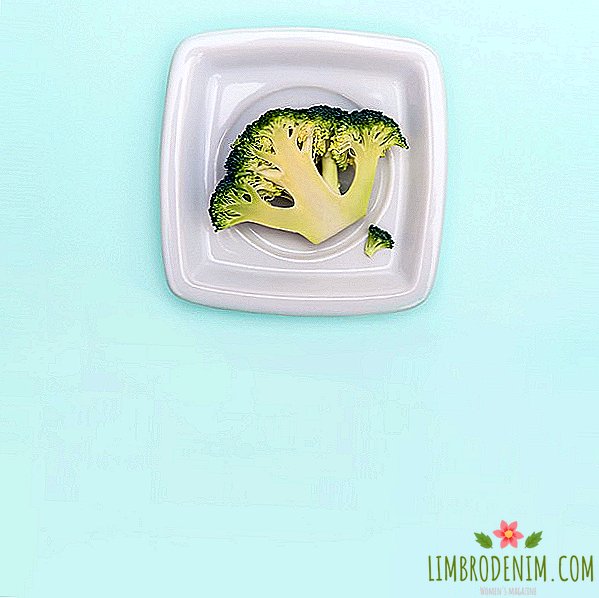I do not want to decide anything: Why are we tired of choosing
We do not give to ourselves in this report, but every day we have to face hundreds of solutions. What to answer to the working letter? Do you agree with the proposal of a colleague? Where to go for lunch (and whether to go out at all)? View the new trailer right now or wait for the evening at home? And all this is not counting global issues: am I happy with my partner and does this form of relationship suit me? Should I change jobs and respond to the class vacancy? Do I want to live in this city and in this country?
Not surprisingly, by the end of the day, when we need to choose between going to the gym and a slice of pizza for dinner, we prefer the latter. Researchers believe that there is a logical explanation for all of this: our will power is not infinite and we get tired of making decisions, like any other tedious task — sometimes we just don’t have enough resources for it.
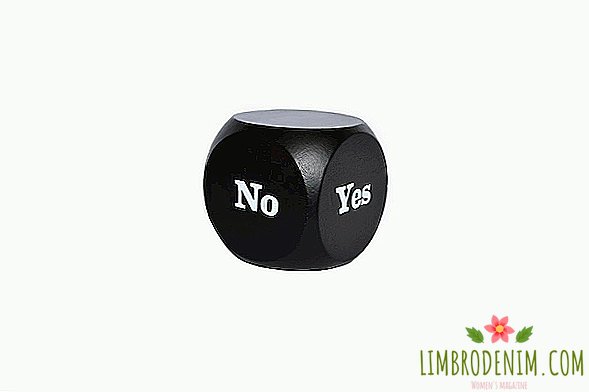
What is decision fatigue?
The term "decision fatigue," that is, "decision-making fatigue," was coined by social psychology expert Roy Baumeister, who developed Freud's theory. At the end of the last century, Baumeister began to study willpower and decision making and came to the conclusion that willpower, which helps us to control ourselves, is finite. It can be compared with muscles that get tired of long loads: most likely, it will be more difficult for you than usual to walk up to the tenth floor, if you ran five kilometers before, with the same strength of will.
This theory was confirmed by later experiments. In the laboratory, Baumeister conducted an experiment involving two groups of students. Scientists bought several cheap gifts at a sale, and the first group was told that they could pick one of them for themselves, but first they had to choose what they liked best. Candle or T-shirt? If the candle - then with some flavor? If the shirt is red or black? The second group did not need to make decisions: they just looked at things and told how often they used them in the past six months.
Willpower, which helps us to control ourselves, is finite. It can be compared to muscles that get tired of long loads.
After that, all participants completed the task for self-control: they needed to keep their palm in ice water for as long as possible. If the first group lasted an average of 28 seconds, then the second, which did not need to make a choice, lasted longer - an average of 67 seconds. The subjects, who made a choice for a long time, did not have the willpower to make other decisions.
Other scientists also came to similar conclusions. According to a 2014 study, doctors often erroneously prescribe antibiotics near the end of the work shift - this is a simpler and safer way for a tired specialist. Another study showed that judges were more likely to give a conditional early release to the defendant in the morning and after the lunch break than right before lunch, in the afternoon or in the evening. It could be decided that the matter is in a bad mood, hunger and fatigue of judges, but everything is not so simple. Refusal of parole is a safer and easier way: the judge does not risk anything and just postpones the decision for later - if he wishes, he can always give parole later.
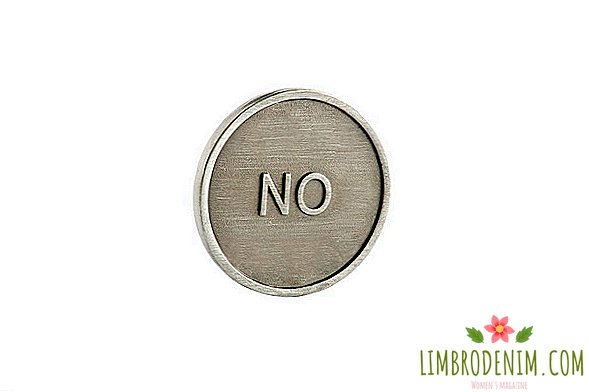
When there is too much choice
American psychologist Barry Schwartz, author of the book "The Paradox of Choice" and the TED lecture of the same name, says that we are accustomed to consider a huge choice as a definite plus, but it also has serious drawbacks. A wide choice not only gives us freedom to make decisions, but, on the contrary, can paralyze: there are so many options that people cannot decide anything. As an example, Schwartz cites a study of her colleague: she studied how employees of a large company choose pension plans, and found that when the number of programs offered by the employer increased by ten, the number of people who chose them decreased by two percent. Everything was explained quite simply: the employees were lost on the number of options and postponed the choice for later (and sometimes they couldn’t take a deep breath and make a decision), thereby depriving themselves of opportunities.
In addition, any choice has costs: the option that we have to give up also has advantages - and because of them, what we ultimately chose may seem less attractive. For example, if you are tired and decide to stay at home instead of going to a party, you can think about how much fun you would have when visiting, and be upset about it - even if in fact this option suits you less. The more options we have, the easier it is to regret our decision - and the easier it is to imagine that somewhere there is an ideal option that we could not find. If our choice turns out to be “imperfect” (and cannot be “perfect” in such a situation), we begin to reproach ourselves for the mistake and for what could have been smarter.
The more options we have, the easier it is to regret our decision - and the easier it is to imagine that somewhere there is an ideal option that we could not find
“Fatigue can give rise to constant label pressure: as if every choice we make determines us, dictates us who we are,” psychologist Yana Filimonova notes. For example, stores now have a large selection of clothes, unlike thirty or Fifty years ago, but there is no longer a single notion of “fashionable” or “unfashionable,” “beautiful,” or “ugly.” Now, however, each chosen thing seems to say something about the buyer: his wealth, taste, subculture, self-presentation It turns out that choosing autumn shoes "I seem to choose my identity. Am I a girl who wants to be fashionable first of all, or a girl who wants her to be comfortable and spits on the opinions of others?"
The psychologist notes that, although there are more choices, new options seem to limit the person. She advises not to take things too seriously: none of them defines you as a person.
If you think that you are not a judge or a doctor, and decision-making fatigue is not dangerous for you, we have bad news. In the era of the public Internet and social networks, there is only more choice: every day we choose between the working email, Facebook tabs and, for example, estimates in Excel (and well, if not only in favor of the second option). Sooner or later, willpower may not be enough - if you have once impulsively ordered an expensive item in an online store, not understanding how it happened, and then convulsively counted the money before the salary, you know what it is.
People who spend all their resources on making ends meet do not have the willpower to study, work and other actions that will help improve their situation.
For individuals, endless choices can have even harder consequences. A number of researchers believe that decision-making fatigue is one of the factors that prevent people from getting out of a difficult economic situation. Those who are experiencing financial difficulties often have to make choices and make more decisions - for example, in the supermarket they cannot simply take the first products they have found, and each purchase requires careful reflection. Journalist John Tierney believes that the stereotypical image of low-income families who eat hamburgers and pasta is explained by the fatigue of the decisions: since every purchase is given to them with great difficulty when they reach the box office, it can be more difficult for them to refuse packaging Skittles or chocolates. People who spend all their resources on making ends meet do not have the willpower to study, work and other activities that will help improve their situation.
"In my opinion, the topic of decision making is closely related to the other two: the topic of freedom and responsibility for one’s life, its authorship. The more freedom (and therefore responsibility for oneself) one has, the more decisions he has to make. This happens as - at the level of global life choices, and at the level of everyday decisions, ”notes Filimonova.“ For example, if I have a free schedule and part-time work, I have to decide every day when to do this or that business. Can I do it now or postpone? Reassign someone? Bra s Do another project or do not pull How will this affect my relationships with clients, customers, on my income, and as a result -? on the future turns out that such small daily choices eventually develops life. "
According to the expert, this awareness over time can begin to put pressure on a person, especially one prone to anxiety and over-responsibility: he may have a feeling of fatigue and a desire not to solve anything else. "Here it is useful to remember that, although a person has a lot of freedom, he is still not responsible for everything. If you think that you are doing enough in general, even if you make a mistake and make a wrong decision, you will get valuable experience that will certainly come in handy the future, ”she notes.
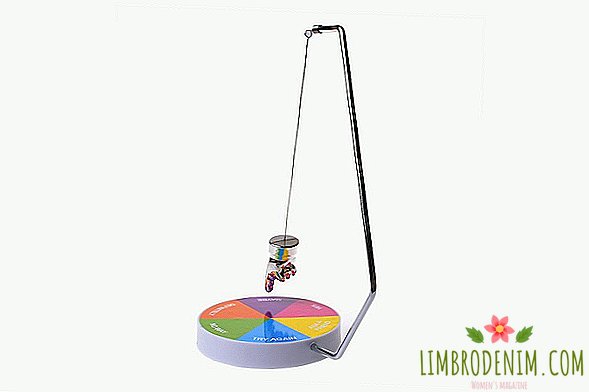
How to handle it
The good news is that decision-making fatigue can be managed - or at least life can be built so that you have the strength to take on more important issues. For example, the brain, like other organs, needs energy - perhaps you just do not have enough glucose, you need a snack or a break.
Another good way to make your life easier is planning. For example, it is better to take important decisions in the morning, when you are not tired of other cases and issues, the same applies to responsible work tasks. The routine also helps to make life easier: if you plan to go to the gym on Tuesdays and Thursdays, you will not have to painfully decide every evening whether to go to the gym or not.
You can minimize less important decisions - for example, follow the example of Mark Zuckerberg or Steve Jobs and choose approximately the same clothes for each day - this will help save energy. If this is too radical a path for you, you can pay attention to the capsule wardrobe or review how your clothes fit together, and make up some ready-made bows. There is even the term "warning design" - they designate such a design that helps to get rid of the daily small decisions. For example, instead of coming to a coffee shop for a long time choosing a drink from the menu, the system itself tells you which drink is right for you - depending on the time of day and your preferences (about the same as a barista might ask: " ? ")
The key to coping with decision-making fatigue is not to constantly rely on your willpower, but to know when, on the contrary, it can fail, and to avoid such situations
There are smaller ones: for example, if you need to take some not very important decision, you can put a time limit: if you feel that you have been thinking about a question for too long, count to three and act. You can try to reduce the number of options: think what is more important to you, and pay attention only to this characteristic. For example, if you can’t decide where to go on vacation, think what you need more: if you want to relax passively and not think about anything, you should hardly consider the ski resorts.
Roy Baumeister believes that the key to coping with decision-making fatigue is not to constantly rely on her own willpower, but to know when she, on the contrary, can fail, and avoid such situations. “Even the wisest people will not make good decisions until they have rested and their glucose levels are low.” He notes. for a cocktail. And if they need to make a decision by the end of the day, they know that it’s better not to do it on an empty stomach. "
Other researchers who study self-control believe that it is still simpler: if willpower gets tired like a muscle, then it can be trained like any other muscle. In other words, after you have been carefully keeping a food diary in a special application for two weeks, it will be easier for you to make a choice in favor of a balanced diet. After a month of playing sports, get yourself out of the house to the gym. The main thing is to start.
Photo: pogoniciI - stock.adobe.com, alenaz - stock.adobe.com, Amazon
